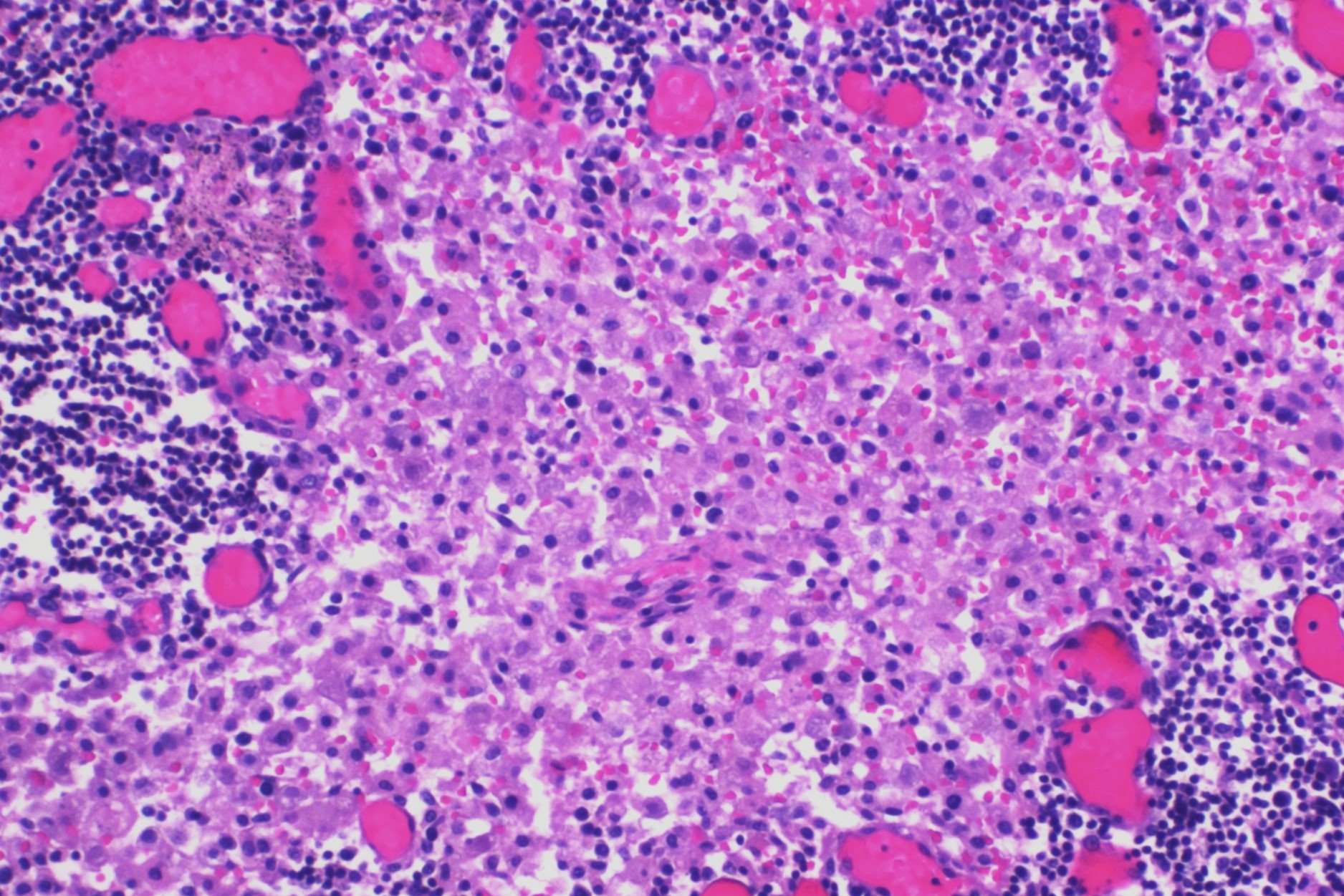
Sinus histiocytosis might sound like a mouthful, but it's a condition worth understanding. This rare disorder, also known as Rosai-Dorfman disease, involves an overproduction of a type of white blood cell called histiocytes. These cells accumulate in the lymph nodes, causing them to swell. Symptoms can range from painless lymph node enlargement to fever and weight loss. While the exact cause remains unknown, researchers believe it could be linked to immune system abnormalities. Diagnosis often requires a biopsy, and treatment varies from observation to medications or surgery, depending on severity. Curious about more details? Let's dive into 30 intriguing facts about sinus histiocytosis!
Key Takeaways:
- Sinus histiocytosis, or Rosai-Dorfman disease, is a rare condition causing painless swelling of lymph nodes. It can affect all ages and may involve other organs. Treatment options vary, including observation, steroids, chemotherapy, and surgery.
- Ongoing research aims to better understand and treat sinus histiocytosis. Genetic studies, clinical trials, and patient registries are being used to improve outcomes and increase public awareness. Support groups provide valuable resources for affected individuals.
What is Sinus Histiocytosis?
Sinus histiocytosis, also known as Rosai-Dorfman disease, is a rare disorder characterized by an overproduction of a type of white blood cell called histiocytes. These cells accumulate in the lymph nodes, causing them to swell. Here are some intriguing facts about this condition:
-
Rare Disease: Sinus histiocytosis is considered a rare disease, with only about 100 new cases reported each year worldwide.
-
Discovered in 1969: The disease was first described by pathologists Juan Rosai and Ronald Dorfman in 1969.
-
Affects All Ages: Although it can occur at any age, it most commonly affects children and young adults.
-
Lymph Node Swelling: The primary symptom is painless swelling of the lymph nodes, particularly in the neck.
-
Systemic Involvement: While it primarily affects lymph nodes, it can also involve other organs such as the skin, eyes, and bones.
-
Unknown Cause: The exact cause of sinus histiocytosis remains unknown, though it is believed to involve an abnormal immune response.
Symptoms and Diagnosis
Understanding the symptoms and how sinus histiocytosis is diagnosed can help in early detection and treatment.
-
Fever: Some patients may experience fever along with lymph node swelling.
-
Weight Loss: Unexplained weight loss is another symptom that may accompany the disease.
-
Night Sweats: Patients often report night sweats as a common symptom.
-
Blood Tests: Blood tests can show elevated levels of certain proteins and cells, aiding in diagnosis.
-
Biopsy: A definitive diagnosis is usually made through a biopsy of the affected lymph node.
-
Imaging Tests: CT scans and MRIs can help determine the extent of the disease.
Treatment Options
Treatment for sinus histiocytosis varies depending on the severity and extent of the disease.
-
Observation: In mild cases, doctors may recommend a "watch and wait" approach.
-
Steroids: Corticosteroids are often used to reduce inflammation and swelling.
-
Chemotherapy: In severe cases, chemotherapy may be necessary to control the disease.
-
Radiation Therapy: Radiation can be used to target and shrink affected lymph nodes.
-
Surgery: Surgical removal of affected lymph nodes may be an option in some cases.
-
Immunotherapy: Newer treatments involve using drugs that modify the immune system's response.
Prognosis and Complications
The prognosis for sinus histiocytosis can vary widely, and understanding potential complications is crucial.
-
Variable Prognosis: The prognosis can range from spontaneous remission to chronic, relapsing disease.
-
Organ Involvement: When organs other than lymph nodes are involved, the disease can be more challenging to treat.
-
Secondary Infections: Patients may be more susceptible to infections due to a weakened immune system.
-
Chronic Pain: Persistent swelling and organ involvement can lead to chronic pain.
-
Emotional Impact: The disease can have a significant emotional and psychological impact on patients and their families.
Research and Future Directions
Ongoing research aims to better understand and treat sinus histiocytosis.
-
Genetic Studies: Researchers are investigating potential genetic factors that may contribute to the disease.
-
Clinical Trials: New treatments are being tested in clinical trials to improve outcomes for patients.
-
Biomarkers: Scientists are working to identify biomarkers that could help in early diagnosis and monitoring of the disease.
-
Patient Registries: International patient registries are being established to collect data and improve understanding of the disease.
-
Collaborative Research: Collaboration between researchers, clinicians, and patient advocacy groups is essential for advancing knowledge and treatment.
-
Public Awareness: Increasing public awareness about sinus histiocytosis can lead to earlier diagnosis and better support for patients.
-
Support Groups: Patient support groups provide valuable resources and community for those affected by the disease.
Final Thoughts on Sinus Histiocytosis
Sinus histiocytosis, also known as Rosai-Dorfman disease, is a rare disorder that primarily affects the lymph nodes. Understanding its symptoms, causes, and treatment options can help in managing the condition effectively. Key symptoms include painless swelling of lymph nodes, fever, and night sweats. While the exact cause remains unknown, it’s believed to involve an overactive immune response. Treatment varies from observation to medication and, in some cases, surgery. Early diagnosis and tailored treatment plans can significantly improve quality of life for those affected. Staying informed and consulting healthcare professionals are crucial steps in navigating this condition. Remember, every case is unique, so personalized medical advice is essential. By spreading awareness and knowledge, we can support those dealing with sinus histiocytosis and contribute to better health outcomes.
Frequently Asked Questions
Was this page helpful?
Our commitment to delivering trustworthy and engaging content is at the heart of what we do. Each fact on our site is contributed by real users like you, bringing a wealth of diverse insights and information. To ensure the highest standards of accuracy and reliability, our dedicated editors meticulously review each submission. This process guarantees that the facts we share are not only fascinating but also credible. Trust in our commitment to quality and authenticity as you explore and learn with us.
